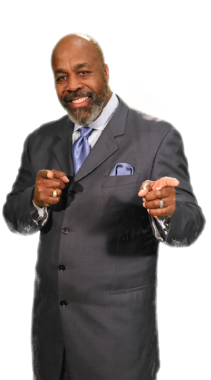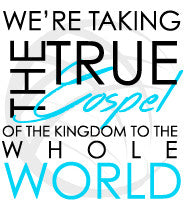Did Yeshua Resurrect On Sunday?
Posted on Wednesday, September 16 2015 02:48:00 PM in Teachings by Arthur Bailey
Wasn’t the Sabbath changed from Saturday to Sunday because Yeshua arose from the grave on the first day of the week?
First we must consider what possible bearing the day of
Yeshua’s resurrection could have on what day the Sabbath is to
be celebrated. Outside of church tradition there is no reason
for changing the Sabbath day – certainly none to be found in the
Bible. (See the next chapter for more information on this.)
Second we have to ask the question, “Is it even true that
Yeshua was resurrected on Sunday?”
Notice what Yeshua told the Pharisees who were looking for a
sign of the Messiah: “An evil and adulterous generation seeks
after a sign, and NO SIGN will be given to it EXCEPT the sign of
the prophet Jonah. For as Jonah was three days and three nights
in the belly of the great fish, so will the Son of Man be three
days and three nights in the heart of the earth” (Matt.
12:39-40). The only sign Yeshua gave to prove He was the Messiah
was that the grave would only hold Him for a limited amount of
time – exactly “three days and three nights” (or 72 hours). But
the Easter Sunday tradition maintains that Yeshua was buried
just before sunset on “Good Friday” afternoon and resurrected
early Sunday morning – only two nights and one day (or 36 hours)!
Some will argue the definition of “day.” But Yeshua clearly
stated that there are 12 hours in a day, not including the night
(John 11:9-10). Therefore when Easter Sunday proponents take
His remark and conclude that Yeshua was in the grave three days
x 12 hours = 36 hours, we can see that they are leaving out the
“three nights.” There are approximately 12 hours of daytime and
12 hours of nighttime in one 24-hour day! So three days and
three nights are definitely 72 hours. But was it exactly 72
hours? Yeshua said He would arise “AFTER three days” (Mark
8:31) – i.e. no less than 72 hours. But He also said He would rise
“IN three days” (John 2:19, 21) – i.e. no more than 72 hours. This
is absolutely clear – 72 hours exactly! And YeHoVaH is always right
on schedule.
Also consider that when the women came to His tomb Sunday
morning, “it was still dark” (John 20:1) and He had already
risen. How could this be? The Sunday resurrection proponents
contend that He had risen just moments before. If they were
correct, then “three days and three nights” earlier would be
just before sunrise on Thursday morning. Yet no one believes
that Yeshua was buried on Thursday morning (or any morning for that
matter), and with good reason. When Joseph of Arimathea laid
Yeshua’s body in the tomb, “the Sabbath drew near” (Luke
23:50-54). Biblical days including Sabbaths begin at sunset
and end the following sunset (cf. Genesis 1:5-31; Leviticus
23:32) – a nighttime period followed by a daytime period.
Yeshua then was buried in late afternoon – before a
particular Sabbath began at sunset. Three days and three nights
later would be the same time of day, or late afternoon! Now we have
another problem. If we assume that Yeshua was buried on Friday
afternoon as the Good Friday tradition asserts, then His
resurrection (72 hours later) would be Monday afternoon. Yet no
one believes this either, and again with good reason. For remember
that Yeshua had already risen before the women came to His tomb
prior to daybreak Sunday morning! What then is the answer?
Why have so many thought that Yeshua was put in the grave on
Friday afternoon? Mark 15:42 states that “it was the Preparation
Day, that is, the day before the Sabbath.” Since the weekly
Sabbath always occurred on the seventh day of the week (now
called Saturday), the “Preparation Day” was normally on Friday.
However we have already seen the problem with this. The answer
to the apparent dilemma is that the weekly Sabbath is not the
only Sabbath mentioned in the Bible. Leviticus 23 lists seven
annual Holy Days that occur in YeHoVaH’s Festivals. Each of these
days was considered a Sabbath (or a “rest” from normal labor).
All annual Sabbaths or “High Days” (except Pentecost) fell on
particular calendar dates rather than set days of the week.
Now the mystery can be solved by reading John 19:31. The Jews
wanted to remove the crucified victims “because it was the
Preparation Day, that the bodies should not remain on the cross
on the Sabbath (for that Sabbath was a HIGH DAY).” Yeshua ate His last supper with His disciples the night before His death (Luke
22:15). He died on the cross the next afternoon, which was still
Passover (the 14th of Abib or Nisan according to the Hebrew
Calendar – Leviticus 23:5). Leviticus 23:6-7 reports that the next
day, beginning the evening after His crucifixion, was not a
weekly Sabbath but an annual Sabbath – the first day of the Feast
of Unleavened Bread.
Now put together the facts. It is clear from the Bible that
Yeshua died and was buried on Passover afternoon and that the
following day was an annual Sabbath. It is also clear that He
was resurrected at the same time of day – late afternoon. But
which afternoon? Since the women found Him already gone Sunday
morning, it would be sensible to conclude that He had been
resurrected the previous afternoon on Saturday! This would mean
He had been buried three days and three nights earlier or Wednesday
afternoon. It would also mean that Passover (Nisan 14) fell on a
Wednesday that year. And indeed that is what happened in A.D.
31, a year that fits the time frame the Bible demands.
Scripture also provides further proof that there were TWO
Sabbaths that week – an annual and a weekly one. In Mark 15:47,
Mary Magdalene and her companion watched Joseph of Arimathea lay
Yeshua in the tomb near the end of the Passover. The next verse,
Mark 16:1, tells us that after the “Sabbath,” Mary Magdalene and
her companions bought spices with which to anoint Yeshua’s dead
body. However Luke 23:56 shows that they prepared the spices
before the Sabbath. Naturally they couldn’t have prepared
spices before they were even bought! The only explanation that
makes sense is that they bought the spices on Friday and
prepared them the same day – after the annual Sabbath on Thursday
and before the weekly Sabbath on Saturday! Then they rested on
the weekly Sabbath; at the end of which Yeshua was resurrected.
The next morning (Sunday) they came to the tomb before sunrise
and found Him already gone.
But some will point out Mark 16:9 which says: “Now when He
rose early on the first day of the week…” Yet how can this be?
To understand we should read the verse in the original King
James Version and continue further in the sentence: “Now when
Yeshua was risen [the perfect tense is correct here – He was
already risen] early the first day of the week, he appeared
first to Mary Magdalene.” He was not “rising” on Sunday morning.
As we’ve seen, He rose Saturday afternoon. So early Sunday
morning He was already “risen.” Also realize that in the
original Greek there was no punctuation. Had the King James
translators simply put a comma after the word “risen” and not
after “week,” this would make complete sense. The Centenary
Translation renders it this way: “Now after his resurrection,
early on the first day of the week he appeared first to Mary
Magdalene.”
To conclude, a Sunday morning resurrection could not be the
reason for changing the weekly day of worship from Saturday to
Sunday. But even if Yeshua were resurrected on Sunday, why would
His disciples (who had kept the seventh-day Sabbath with Him) have
abandoned His example of keeping the Ten Commandments and
switched to Sunday-keeping? And why would they have picked
Sunday, a day already associated with pagan sun worship? The
Bible is very clear that Yeshua was not resurrected on Sunday
morning and thus this attempt to change YeHoVaH’s Torah is NOT
scriptural!
If you enjoyed this blog post, you will love the book, “Sunday Is Not The Sabbath?”
Arthur Bailey is The Overseer of House Of Israel. House of Israel (HOI) Global Headquarters is located in Charlotte, NC. HOI is a Messianic, Hebrew, Hebraic Roots, and Messianic Discipleship Training and Leadership Development Center. As a Torah-Teaching, Spirit-Filled, New Covenant ministry, we actively teach the Hebrew Roots of the Christian faith.





Elaine pittman on 12 Dec 15:00
You’re teaching is what l have been searching for, for a long time.
Elvie Hoag on 28 Nov 16:30
I am so glad that I have found your teaching! I have been getting glimpses of your truth while studying the bible on my own. But, I had never heard it preached until I saw your sermon on the church channel, today Nov 28th. I am anxious to learn more and to help support your ministry.
Sincerely, Elvie Hoag
James Stewart on 28 Nov 15:31
Wow I’m sorry but I’m more confused now. I thalt Yeshua died 3:00 pm or the ninth hr. on Friday and rose early Sunday morning. Am I right? But I know that Sunday is not the Sabbath and I know that God tells us to remember the Sabbath day like he knew it would be change by men . But I just learn that not long ago.
Barbara Edwards on 31 Oct 09:59
I came to the same conclusion over 30 years ago! Ya has been working with me a long time!
sherri stadel on 20 Oct 02:27
I would love to read this whole book someday then buy a case of them, and pass them out to my Minnesota family and my old Church family there in Minnesota also! I love what I’ve read so far! Shalom HOI family
Patricia Mccaskill on 18 Oct 18:59
Good evening recently I have been studying and listing to Arthur Bailey and I found myself seeing a lot of the same things I wrote and studying from being in seminar school on the subject Sabbath, the seven feast and more it was explained but for some reason I felt it was more concerning truth about the word of God. I really struggle now within and it hurts to find you been taught wrong all these years what is the truth concerning the word. Being in school for eight years taking a stand on what you believe and what you were taught to believe. This is the statement I made in one of my paper if you want to know the Truth ask the heavenly father cause he is truth. This I will say concerning Arthur Bailey he teaches plain and clear break everything down. Thank you